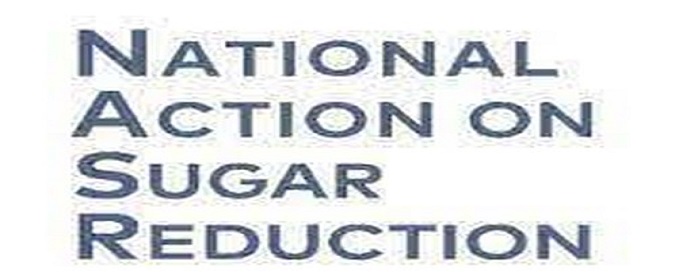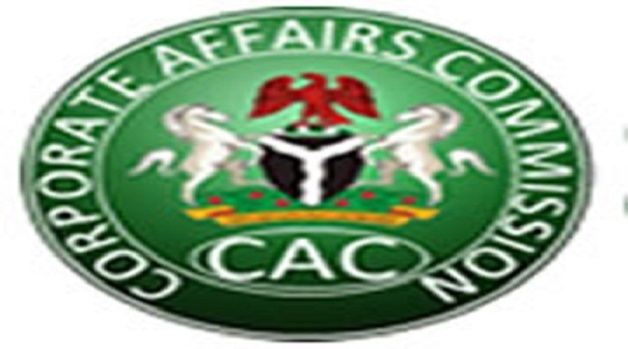News
Coalition Protests Suspension of SSB Tax, Calls for Cut in Insulin Tariffs

National Action on Sugar Reduction Coalition (NASR) has criticised the suspension of the sugar-sweetened beverage (SSB) tax and has also demanded a reduction in insulin tariffs.

Science Nigeria reported that the coalition claims that these decisions have severe repercussions for public health and pose a direct threat to individuals with diabetes.
Addressing stakeholders at a meeting in Abuja on Monday, the NASR Coalition, which has been advocating for health-focused policies, including the N10 per litre excise tax in the 2021 Finance Act, urged the government to reinstate the SSB tax and lower insulin tariffs.
Dr. Adamu Umar, president of the Nigeria Cancer Society (NCS) and co-chairman of the NASR Coalition, emphasised the necessity of these measures for improving the health of Nigerians and reducing the prevalence of non-communicable diseases.
Umar stated, “SSB consumption is a modifiable risk factor for non-communicable diseases, including diabetes mellitus, cancers, and heart diseases. It is, therefore, pertinent to have proactive measures in place to curtail the harmful effects of these products”.
Expressing concern about the temporary suspension of the SSB tax, the coalition called for increased taxation on sugary beverages, aligning with global best practices. Additionally, they urged the government to provide subsidies for insulin and remove tariffs, ensuring a better quality of life for Nigerians.
“We demand that taxes on insulin be removed, and revenue from sugary drinks taxes can be used to subsidise insulin treatments for patients,” said Umar, highlighting the potential benefits of pro-health taxes like the SSB tax in promoting a healthier population.
Mr. Bernard Enyia, national secretary of the Diabetes Association of Nigeria, echoed these sentiments, expressing disappointment over the suspension of the SSB tax.
He emphasised the urgent need to reinstate the deduction in sugar taxes for the sake of those already living with diabetes.
Ms. Funmi Adefila-Osiegbu, member of the coalition and executive director of Bundies Care Support Initiative, stressed the importance of reducing the burden on Nigerians in accessing healthcare. She advocated for the restoration of the SSB tax to contribute to health financing, directing generated revenue from sweetened beverage taxes to healthcare.
According to Science Nigeria, health experts and individuals affected by diabetes joined the coalition in expressing their outrage over the policy changes.
Dr. Sarah Thompson emphasised that obesity and related diseases are major public health concerns requiring immediate attention. Suspending the SSB tax, according to her, sends the wrong message and undermines efforts to combat these health issues.
A diabetes patient and coalition member, highlighted the life-saving nature of insulin for those with diabetes.
He emphasised the need for affordable insulin and called on policymakers to prioritise public health over short-term economic considerations.
The coalition’s stance reflects a growing sentiment among health experts and affected individuals who believe that reinstating the SSB tax and reducing insulin tariffs are critical steps in tackling the rising rates of obesity and associated health complications in Nigeria.
News
Ould Tah, AfDB President Presses for Scaled-Up Financing and Stronger Partnerships to Realize Africa’s Development Goals @ UNGA80

Sidi Ould Tah, President, African Development Bank Group is attending the United Nations’ 80th General Assembly this week to push the continent’s development priorities and mobilise support for the replenishment of its concessional lending arm the African Development Fund.

High on Dr Ould Tah’s packed agenda are financing, resource mobilization, climate change, African financial architecture, concessional resources, socio-economic fragility, regional integration, peace and security.
As a guest speaker at several sideline events, he will have the opportunity to present his strategic vision, based on four cardinal points: achieving self-sufficiency and unlocking Africa’s potential; reforming Africa’s financial architecture; transforming population growth into an economic engine for job creation for women and youth; and building climate-resilient infrastructure and creating added value.
Since Sunday, Dr Sidi Ould Tah has met with several global development leaders and heads of government.
The president of the Bank held talks with Ms Amina J. Mohammed, Deputy Secretary-General of the United Nations, on prospects for strengthening cooperation between the two institutions. Dr Ould Tah praised Africa’s resilience and commitment in the face of current challenges and stressed the need for development partners to work together to build a new African financial system, drawing on each other’s strengths.
In a meeting with UNFPA Executive Director Ms Diene Keita, he affirmed the importance of maternal health, stressing the importance of transforming Africa’s demographics into a demographic dividend.
“This means investing in mothers and girls today,” Dr Ould Tah added.
With Botswana’s President Duma Gideon Boko, Dr Ould Tah discussed the country’s strategic priorities and opportunities for partnership with the Bank. President Boko stressed the need to “diversify the economy beyond diamonds and invest in infrastructure, particularly rail interconnectivity, to position Botswana on major regional trade corridors.” For his part, President Ould Tah stressed the importance of developing natural resources as a lever for job creation for African youth.
Dr Sidi Ould Tah held a one-on-one meeting with Sheikh Shakhboot Nahyan Al Nahyan, Minister of State for Foreign Affairs of the United Arab Emirates, who reaffirmed that his government is ‘ready to support the Bank’s mission in every way possible’ and to strengthen the relationship.
On Wednesday, Dr Ould Tah participated in the launch of new National Energy Compacts under Mission 300, a joint initiative between the World Bank and the African Development Bank Group to provide electricity to 300 million Africans by 2030.
A trilateral meeting focusing on continental issues is scheduled with the Chairperson of the African Union Commission, Mahmoud Ali Youssouf, and the Executive Secretary of the United Nations Economic Commission for Africa, Claver Gatete.
The seventeenth replenishment of the African Development Fund, the concessional window of the African Development Bank Group is coming up in December.
Among Dr Ould Tah’s priorities will be to drum up support for the upcoming replenishment, amidst a global climate of dwindling development aid. On Tuesday, he confirmed that several African countries have pledged support for the fund, which is a key source of financing for 37 low-income African countries.
News
Ag, Ex-NBA Secretary Arraigned for Alleged Cyberstalking

The police on Wednesday arraigned Mr Chinedu Agu, ex-secretary of the Nigerian Bar Association (NBA) Owerri Branch, before an Owerri Magistrate Court, for alleged cyberstalking, defamation of character, and inciting civil disobedience.

Mr Chinedu Agu, ex-secretary of the Nigerian Bar Association, Owerri Branch
However, the case was adjourned to Thursday, 25 September, following the absence of a magistrate to hear the case, and the lawyer remains in police custody.
Agu was detained on Tuesday when he paid his second visit to the police in Owerri, less than a week after he honoured a police invitation.
Henry Okoye, spokesperson for the police in the state, disclosed that Agu’s arraignment was done in accordance with the laws of the land and respect for his fundamental human rights.
Okoye said, “Yes, Mr Chinedu Agu, Esq., has been arraigned before a Magistrate’s Court in Owerri on allegations bordering on cyberstalking, defamation of character, inciting civil disturbances, and conduct likely to cause a breach of the peace.”
“The arraignment was carried out in accordance with the rule of law and with due respect for his fundamental human rights.”
The Owerri Branch of the Nigerian Bar Association was yet to officially issue a statement on Agu’s arraignment as at the time of filing this report.
Recall that Mr Agu wrote a travelogue in which he did a comparative analysis of the Enugu and Imo states under their present respective administrations after the NBA annual conference.
The commentary, which gave kudos to the Enugu State administration of Mr Peter Mbah and knocks to the Imo State administration of Senator Hope Uzodimma, was copiously published on social media.
It was shortly after the article went viral that the police cabled an invitation to Mr Agu; he was slammed with the allegations by the Imo State Police Command.
News
CAC Unveils Measures to Ease Company Registration

Mr. Hussaini Ishaq-Magaji, SAN, registrar-general of the Corporate Affairs Commission (CAC), said the commission is determined to end delays in business registration and service delivery through new digital reforms.

Ishaq-Magaji stated this on Monday at the CAC Stakeholders’ Forum held in Kano, which brought together lawyers, business owners, EFCC, ICPC, and other partners to review challenges and reforms in the commission’s service.
He said the commission had inherited an overstretched registration portal that was unable to cope with the growing demands triggered by compliance initiatives such as mandatory registration of Point-of-Sale (PoS) businesses and annual returns filing.
According to him, the situation created a backlog of applications and placed an unfair burden on customers and staff. “Our call centre and operational departments receive no fewer than 3,000 emails daily, with less than 100 staff attending to them.
“This model is not sustainable and not fair to our customers or our staff. That is why we resolved to change it for good,” he said.
The registrar general explained that the commission had introduced an Artificial Intelligence-powered portal capable of reading and routing thousands of customer requests within seconds.
He added that the AI system, launched in June, had successfully reduced the time for business name registration to less than 10 minutes, a feat he described as unprecedented globally.
“Anywhere you are, without knowing anyone in CAC or paying a middleman, you can register a business name and get your certificate instantly in less than 10 minutes. That is the new Nigeria we are building,” he said.
He, however, acknowledged that other services, such as limited liability company and incorporated trustee registrations, were still experiencing delays due to backlogs, with about 7,000 pending applications being handled by only 63 registry staff.
The registrar-general assured stakeholders that further phases of the digital reform would address these gaps, stressing that technology was now a necessity for the commission to deliver its mandate.
Also speaking, Ahmed Abubakar, Chairman, Nigerian Bar Association (NBA), Ungogo branch, commended the commission for its digital reforms, describing them as a “remarkable achievement.”
Similarly, Usman Umar-Fari, Chairman, NBA Kano branch, urged the CAC to encourage companies to fulfill their corporate social responsibilities and create more opportunities for lawyers.

 Telecom2 days ago
Telecom2 days agoAirtel Africa Extends $100M Share Buyback Plan

 News2 days ago
News2 days agoCAC Unveils Measures to Ease Company Registration

 News2 days ago
News2 days agoPolice Begins Enforcement of Tinted Glass Permits from October 2

 Broadcasting2 days ago
Broadcasting2 days agoCanal+ Takes Full Control of MultiChoice, Changes Board

 E-Financial2 days ago
E-Financial2 days agoNAICOM, NCRIB Commit to Drive Penetration

 E-Financial2 days ago
E-Financial2 days agoVisa Unveils Affluent Rewards Program in Nigeria

 News3 days ago
News3 days agoTakang, Ladid Lead Africa’s Digital Sovereignty Debate @ DACE 2025

 Telecom2 days ago
Telecom2 days agoStakeholders Chart Strategic Path for MVNOs in Nigeria

























